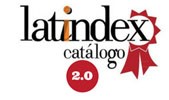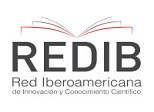Usability of ICT in Secondary Education: Action Research with Teachers and Students from Mexico
DOI:
https://doi.org/10.69890/hallazgos21.v5i1.401Keywords:
Information technology; Educational innovations; Secondary education; Mexico.Abstract
Information and Communication Technologies (ICT) are a high impact tool in the teaching-learning process. Organizations such the Organisation for Economic Co-operation and Development (OECD) have called for the incorporation of ICT in secondary education as part of the technological innovations that contribute to the educational progress of the countries. In the Latin American context, educational innovations present themselves with different challenges at micro social and macrosocial levels. This research was designed under the action research framework and aimed to analyze the perceptions of teachers and students around the incorporation of ICT in a publicly funded secondary school in Mexico City. The sample consisted of 23 teachers and 82 students from a public high school south of Mexico City, the sample was chosen by an intentional non-probabilistic sampling. Four research phases were designed based on the guidelines of the research-action design (diagnosis, pedagogical planning, implementation and evaluation). The results are presented through a quantitative descriptive and qualitative content analysis. In the indicators of “usability of ICT before the workshop and use of ICT in the teaching process” there was a concordance between teachers and students regarding the low frequency of the use of ICT in high school and the importance of these in school activities. From the development of the workshop, 89.3% of the students perceived to have more information about the educational use of ICT. Teachers positively valued the incorporation of new ICTs into their teaching strategies.
References
Álvarez-Herrero, J. (2018). Aprendizaje móvil fuera del aula en Educación Secundaria. In Experiencias pedagógicas e innovación educativa. Aportaciones desde la praxis docente e investigadora. España, Barcelona: Octaedro.
Cabero-Almenara, J. C., & Martínez-Gimeno, A. (2019). Las Tecnologías de la Información y Comunicación y la formación inicial de los docentes. Modelos y competencias digitales. Profesorado, Revista de Currículum y Formación Del Profesorado., 23(3), 247–268. https://doi.org/10.30827/profesorado.v23i3.9421
Fernández-León, T. (2019). Uso de apps en evaluaciones formativas de matemática. En Congreso Iberoamericano. La educaciónn ante el nuevo entorno digital, 1–8. España: UNED. Formación IB.
Gibbs, G. (2012). El análisis de datos cualitativos en Investigación Cualitativa. España, Madrid: Ediciones Morata.
Instituto Nacional para el Federalismo y Desarrollo Municipal. (2010). Sistema Nacional de Información Municipal. Recuperado de https://www.gob.mx/inafed
Kvale, S. (2011). Las entrevistas en investigación cualitativa. Madrid, España: Ediciones Morata.
Latorre, A. (2005). La investigación- acción: Conocer y cambiar la práctica educativa. España: Graó.
Mayoral, A. M., Aparicio, J., Ortiz, L., Quesada, M., & Morales, J. (2019). TIC´s para la docencia y el aprendizaje. España: Universitas. Miguel Hernández.
Medina-Cruz, H., Lagunes-Domínguez, A., & Torres-Gastelú, C. A. (2018). Percepciones de Estudiantes de Nivel Secundaria sobre el uso de las TIC en su Clase de Ciencias. Información Tecnológica, 29(4), 259–266.
Medina, H., Lagunes, A., Arguello, C., & Ponce, S. (2019). Modelo tecno-pedagógico para el aprendizaje de ciencias : Una perspectiva de escuelas secundarias en México. Sistemas, Cibernética e Informática, 16(2).
Merriam, S., & Tisdell, E. (2016). Qualitative Research. A Guide to Design and Implementation (Fourth edi). San Francisco, California: Jossey-Bass.
Organización para la Cooperación y el Desarrollo Económicos. (2016). Innovating Education and Educating for Innovation: The Power of Digital Technologies and Skills. Paris: OECD Publishing. https://doi.org/http://dx.doi.org/10.1787/9789264265097-en
Organización para la Cooperación y el Desarrollo Económicos. (2018a). Education at a Glance 2018: OECD Indicators (Vol. Publicacio). París. https://doi.org/10.1787/eag-2018-36-en
Organización para la Cooperación y el Desarrollo Económicos. (2018b). Young people struggling in digital world , finds latest OECD PISA survey. Paris. Retrieved from https://www.oecd.org/newsroom/young-people-struggling-in-digital-world-finds-latest-oecd-pisa-survey.htm
Okuda-Benadives, M., & Gómez-Retrepo, C. (2005). Métodos en investigación cualitativa: triangulación. Revista Colombiana de Psiquiatría, XXXIV(1), 118–124.
Ramírez-Ramírez, L. N. (2020). Tendencias de la innovación educativa en los contextos sociales .Análisis del mapeo de literatura. Revista Educación, 44(1), 1–19. https://doi.org/10.15517/revedu.v44i1.33222
Ramírez-Ramírez, Leticia Nayeli, & Ramírez-Montoya, M. S. (2018). El papel de las estrategias innovadoras en educación superior: Retos en las sociedades del conocimiento. Revista Pedagogía, 39(104), 147–170. Recuperado de https://repositorio.itesm.mx/bitstream/handle/11285/630729/Ramírez%26RamirezUpedagogia.pdf?sequence=1&isAllowed=y
Vicente-Lancrin, S., Urgel, J., & Jacotin, G. (2019). Measuring Innovation in Education 2019. What has changed in the classroom? Paris: Educational Research and Innovation, OECD Publishing. Recuperado de https://doi.org/10.1787/9789264311671-en%0A
Published
How to Cite
Issue
Section
License
Los artículos enviados a la Revista Científica Hallazgos21 deberán ser totalmente originales e inéditos.
Los autores son los responsables de los textos y las imágenes incluidas en los artículos y no necesariamente reflejan el pensamiento de la editorial o de la Pontificia Universidad Católica del Ecuador, Sede Esmeraldas (PUCESE).
Los autores disponen cederle a la Revista Científica Hallazgos21 todos los derechos inherentes para la edición, publicación y distribución o divulgación del mismo.
Se autoriza a las revistas firmantes de los acuerdos de Encuentros de Revistas Latinoamericanas para reproducir en parte o totalmente los artículos con la sola mención de la fuente claramente señalada.







